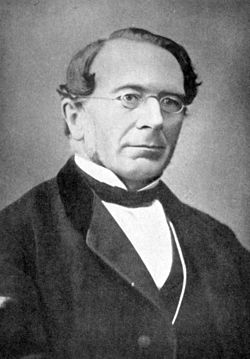This article may be confusing or unclear to readers.(March 2015) |

The jurisprudence of concepts was the first sub-school of legal positivism, [1] [2] according to which, the written law must reflect concepts, when interpreted. [3] Its main representatives were Ihering, Savigny and Puchta.
This school was, thus, the preceding trigger of the idea that law comes from a dogmatic source, imposition from man over man and not a natural consequence of other sciences or of metaphysical faith.
Among the main characters of the jurisprudence of concepts are:
- formalism, search of rights in written law
- systemisation
- search for justifying specific norm with basis from more generic ones. [4]
So, according to this school, law should have prevailing sources based upon the legislative process, although needing to be proven by more inclusive ideas of a social sense.